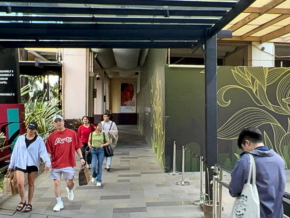Should social networking sites require proof of ID?
Millennials have taken full advantage of social media, sharing what goes on in their lives on a daily (if not hourly) basis. This, however, poses many risks, but can be prevented by simple security measures such as those espoused by Facebook.
One worry that the public has, however, is the large number of fake accounts. These accounts are a mix of people who do not really exist or who claim to be someone else. These accounts are, more often than not, under the control of one individual who’s either bored to death at home or someone who wants to ruin the social media experience for everybody.
This brings up the question: should social networking sites start requiring proof of identification as part of their sign-up process? We look into the pros and cons of including IDs as part of their requirements.
Pros:
- Less risk of fake accounts. When people get a government-issued ID from a certain agency (Land Transportation Office, Social Security System, Commission on Elections, etc.), they’re usually just given one. These contain not only your name but your date of birth, photo, home address, and anything else relevant to that agency. It’s a fool-proof way of proving your identity, and assures any social networking site that there is only one such person who exists.
- Acts as a barrier between multiple accounts. Since you’re only issued one government ID per agency you visit, you’ll be forced to use your real name. Social networking sites hate having to deal with the same name over and over again, and asking for your ID ensures no one person can spam a comment thread or post the same thing over and over using multiple accounts.
- Easier and more secure access to your account in case you get locked out. With Facebook, Twitter, or Instagram having access to your ID, you’ll be able to get access to your account. It also makes it easier to get back into your account should someone try to hack into it, since it is presumed you’re the only one who holds whatever ID you gave them during registration.
Cons:
- Your information could STILL be stolen. It’s no secret that the internet is about as airtight as your neighbor’s leaky faucet. No matter what security measures you take, someone somewhere can get all that information and start making use of it: from falsifying your signature (most government IDs have it) to using your identity to do bad things.
- It makes signing up a hassle. People usually hate being asked too many questions in person, and hate answering too many questions or giving away too many of their “things” online. People go online for the convenience it provides; giving away something personal might deter them from doing so.
- It can be circumvented. Humans are, by nature, highly inquisitive and creative in solving any problem they face. If you won’t let them in, they’ll find a different way in. If parents can make a Facebook account for their kids under the age of 13, who’s to say it’s not possible to still make multiple accounts for spamming, trolling, or fooling someone on social media even with the guise of requiring IDs?
- It’s impractical. The monitoring team of these social media sites would not be able to keep up with the wealth of information given to them. Adding this extra layer of security would also mean having to implement a new set of codes to cross check the ID provided with government records. Speaking of which,
- The government will have easier access to your personal information. It’s no secret that people hate it when the government looks up their personal information without their consent. People like their privacy especially from Big Brother, and requiring social networking sites to ask for your government ID only makes this worse.
As it stands, no social networking site will ask for your ID unless you’ve been locked out of your account and you want to prove to them that you are the bonafide owner of that account. Will this change in the future? We’re not entirely sure.
What about you? Do you think social media sites should ask for your ID during the sign-up process? Let us know in the comments section.













